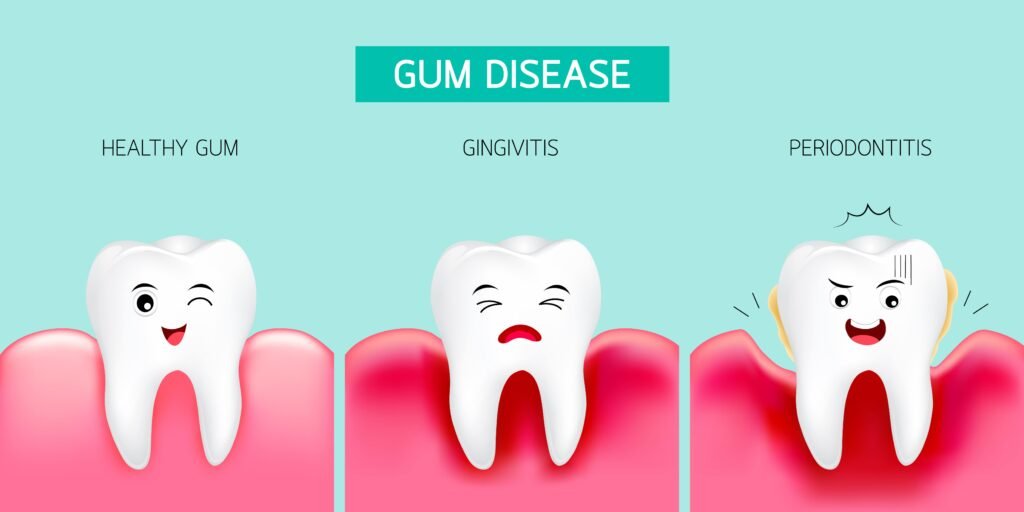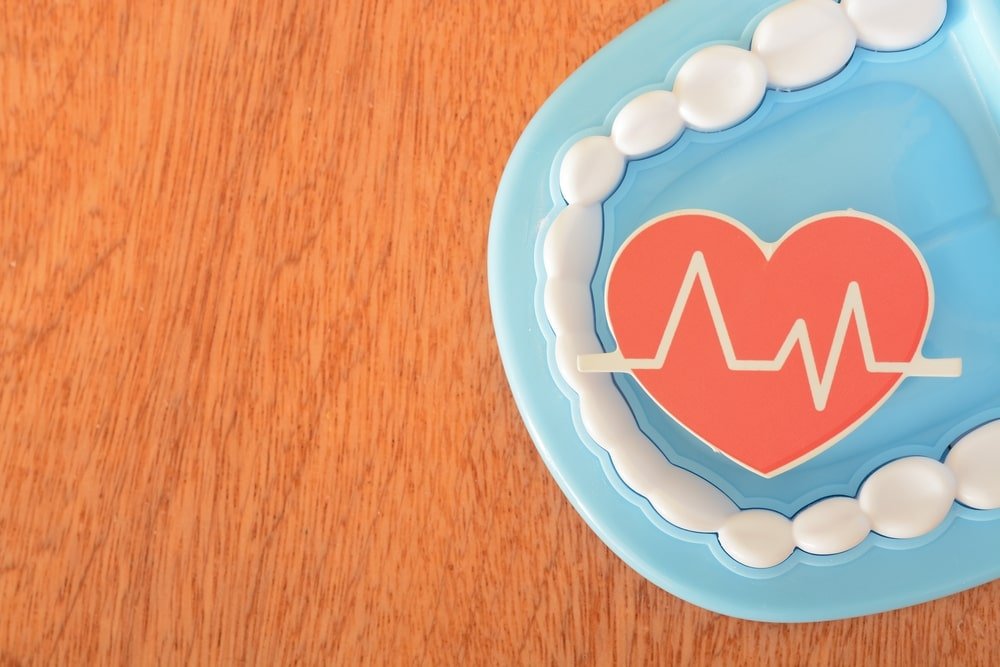Do you often wake up with a parched throat, bad breath, or even a sore jaw? Perhaps you’ve noticed your teeth becoming more sensitive lately, or your gums seem a little more prone to bleeding. For many adults, these uncomfortable symptoms are dismissed as normal quirks of modern life. But what if they’re all connected to a hidden culprit that’s silently wreaking havoc on your oral health: chronic mouth breathing? You might think mouth breathing is mostly a childhood concern, something kids grow out of. Yet, a surprising number of adults habitually breathe through their mouths, often without even realizing it. This seemingly simple habit carries a cascade of consequences, particularly for your teeth and gums, that go far beyond just discomfort. It’s a silent threat that can undermine your overall well-being, starting right in your smile. At White Tooth Dental, we believe in empowering you with knowledge. Our holistic approach to oral health means looking beyond the immediate issue to understand its root causes.
Let’s explore the unseen dental impact of mouth breathing and discover how to reclaim a healthier, more vibrant smile.
The Essential Difference: Nose vs. Mouth Breathing
Before we dive into the problems, let’s understand the ideal. Our bodies are designed for nasal breathing.
Your nose acts as a sophisticated filter, humidifier, and temperature regulator for the air you breathe.

It warms and moistens the air, removes allergens and pollutants, and even produces nitric oxide, which helps your lungs absorb oxygen more efficiently.
When you breathe through your mouth, you bypass this natural filtration system. The air enters directly, unfiltered, unwarmed, and unhumidified.
This might not sound like a big deal, but it sets off a chain reaction that directly impacts your oral environment.
Here’s a visual to help understand the fundamental difference:
The core mechanism through which mouth breathing causes problems is chronic dry mouth, medically known as xerostomia.
Your saliva is a superhero for your teeth and gums. It’s packed with minerals that re-mineralize enamel, enzymes that aid digestion, and antibacterial properties that neutralize harmful acids and wash away food particles.
When you breathe through your mouth, especially at night, your mouth becomes a dry, arid environment, dramatically reducing saliva flow and its protective benefits.
The Silent Damage: Unseen Dental Consequences
When saliva production dwindles, your oral defenses crumble.
This creates an open invitation for a host of dental problems you might not directly link to how you breathe.
Chronic Dry Mouth: Beyond Just Discomfort
The most immediate and pervasive consequence.
A constantly dry mouth isn’t just uncomfortable; it’s a breeding ground for bacteria.
Without saliva to rinse away food debris and neutralize acids, bacteria flourish, leading to a host of other issues.
Think of your mouth like a garden – without water, it wilts and becomes vulnerable.
Increased Risk of Cavities & Tooth Decay
This is a major concern. Saliva is your body’s natural cavity fighter.
It constantly washes away food particles and sugars, neutralizing the acids produced by bacteria that erode tooth enamel.
With insufficient saliva, these harmful acids linger, creating an environment where cavities can form rapidly and aggressively, often in unusual places like the front teeth, which are typically less prone to decay due to saliva flow.
Research has consistently shown a strong link between dry mouth and higher rates of tooth decay.
Gingivitis and Periodontal Disease

Your gums suffer too. Saliva helps maintain a balanced oral microbiome.
When your mouth is dry, the delicate balance shifts, favoring harmful bacteria that cause inflammation and infection. ‘
This can lead to gingivitis (gum inflammation), characterized by red, swollen, bleeding gums.
If left unaddressed, gingivitis can progress to periodontitis, a more severe form of gum disease that damages the bone supporting your teeth and can eventually lead to tooth loss.
Enamel Erosion and Tooth Sensitivity
The acids produced by bacteria are normally buffered by saliva.
When saliva is scarce, these acids can directly attack your tooth enamel, making it weaker and more porous.
This process, known as enamel erosion, can lead to increased tooth sensitivity, particularly to hot, cold, or sweet foods. Your teeth might feel more “zingy” than usual.
Chronic Bad Breath (Halitosis)
A dry mouth is a major contributor to persistent bad breath.

Without sufficient saliva to wash away odor-causing bacteria and food particles, these elements accumulate, leading to an unpleasant smell.
Many people with chronic bad breath are surprised to learn that their nighttime mouth breathing might be the primary cause.
Jaw Pain, Crooked Teeth, and Bruxism (Teeth Grinding)
Chronic mouth breathing can also impact your jaw and tooth alignment.
When you breathe through your mouth, your tongue often rests low and forward, rather than in its natural position against the roof of your mouth.
Over time, this altered tongue posture can influence jaw development and tooth eruption, potentially contributing to issues like crowded teeth, open bites, and even facial structure changes, particularly if mouth breathing began in earlier life.
Furthermore, mouth breathing, especially during sleep, is often linked to sleep-disordered breathing and can exacerbate teeth grinding (bruxism) as the body tries to open the airway.
Here’s a visual representation of how these issues cascade:
Beyond the Mouth: Connecting to Overall Wellness
The impact of mouth breathing isn’t confined to your mouth. Because it often leads to reduced oxygen intake and disturbed sleep, it can significantly affect your overall health and quality of life.
Chronic mouth breathing can be a symptom of underlying sleep disorders like sleep apnea, which are linked to serious health conditions including high blood pressure, heart disease, and diabetes.
Poor sleep quality also impacts your energy levels, cognitive function, mood, and even your immune system.
At White Tooth Dental, under the guidance of Dr. Kristina Pahuta, we recognize this holistic connection and emphasize how oral health is truly a window into your overall well-being.
Identifying the Culprit: Signs You Might Be a Mouth Breather
You might be a chronic mouth breather if you experience one or more of these symptoms:
- Waking up with a very dry mouth or sore throat.
- Chronic bad breath, especially in the morning.
- Frequent cavities, despite good oral hygiene.
- Inflamed, red, or bleeding gums.
- Snoring or symptoms of sleep apnea (gasping, pauses in breathing during sleep).
- Feeling tired or groggy even after a full night’s sleep.
- Difficulty concentrating during the day.
- Chronic nasal congestion or allergies.
- Dark circles under your eyes.
- Changes in your bite or tooth alignment.
Taking Back Your Oral Health: Solutions for Adults
The good news is that recognizing chronic mouth breathing is the first step towards addressing it.

There are numerous strategies, from simple at-home adjustments to professional interventions, that can help you transition to healthy nasal breathing and protect your smile.
At-Home Strategies
- Conscious Nasal Breathing Exercises: Practice keeping your mouth closed and breathing through your nose throughout the day, especially when you’re focusing on other tasks. Simple exercises like the “Buteyko method” or “tongue spot” practice (gently resting your tongue on the roof of your mouth, behind your front teeth) can help retrain your breathing.
- Mouth Taping (with Caution): For nighttime mouth breathing, gentle mouth tape (specifically designed for this purpose) can encourage nasal breathing. Always consult with a healthcare professional before trying mouth taping, especially if you have a history of sleep apnea, severe nasal congestion, or anxiety. Start slowly and ensure clear nasal passages.
- Hydration and Oral Care Products: Drink plenty of water throughout the day. For dry mouth relief, consider using specific over-the-counter products like xylitol-containing lozenges, rinses, or sprays that stimulate saliva flow and protect against decay.
- Sleep Position Optimization: Try sleeping on your back with your head slightly elevated, or on your side, as this can sometimes make nasal breathing easier.
- Allergy Management: If allergies or chronic nasal congestion are contributing to your mouth breathing, consult your doctor or an allergist. Over-the-counter nasal sprays, antihistamines, or saline rinses might help clear your nasal passages, making nasal breathing more comfortable.
When Professional Help Is Key
While at-home strategies are a great starting point, chronic mouth breathing often indicates an underlying issue that requires professional assessment.
- Your Dentist at White Tooth Dental: Your dentist is often the first healthcare professional to notice the dental consequences of mouth breathing. At White Tooth Dental, we can assess your oral health for signs of dry mouth, increased cavities, or gum disease. We can provide targeted restorative treatments for existing damage and offer personalized advice on managing dry mouth symptoms. We can also guide you on the next steps, often recommending a multi-disciplinary approach.
- Myofunctional Therapy: This specialized therapy involves a series of exercises designed to retrain your tongue and facial muscles to encourage proper resting tongue posture, nasal breathing, and correct swallowing patterns. It can be incredibly effective for adults looking to correct long-standing mouth breathing habits.
- ENT (Ear, Nose, Throat) Specialist: If structural issues like a deviated septum, enlarged turbinates, or chronic sinus infections are obstructing your nasal passages, an ENT specialist can diagnose and treat these conditions. Procedures like septoplasty or turbinate reduction can significantly improve nasal airflow.
- Sleep Specialist/Oral Appliance Therapy: For individuals whose mouth breathing is linked to sleep-disordered breathing like snoring or sleep apnea, a sleep specialist can conduct a sleep study. They might recommend Oral Appliance Therapy, where a custom-made dental device (like a Mandibular Advancement Device) is worn at night to reposition the jaw and tongue, keeping the airway open and promoting nasal breathing.
- Orthodontic Solutions: If chronic mouth breathing has contributed to significant malocclusion (misaligned teeth or bite), orthodontic treatment in adulthood can help correct these issues, creating a more harmonious and functional oral structure that supports nasal breathing.
Your Next Steps for a Healthier Smile
Understanding the unseen dental consequences of mouth breathing in adults is a powerful “aha moment.”
It allows you to connect dots between seemingly unrelated symptoms and empowers you to take proactive steps for your health.
If you suspect mouth breathing might be affecting your oral health, don’t wait.
The earlier you address it, the more you can protect your smile and improve your overall well-being.
Frequently Asked Questions (FAQ)
Can mouth breathing in adults be reversed?
Yes, in many cases, adult mouth breathing can be significantly improved or even reversed.
It often requires addressing underlying causes (like nasal obstruction or allergies) and retraining breathing habits through consistent practice and, if necessary, professional therapies like myofunctional therapy.
Is mouth taping safe?
Mouth taping can be safe for some individuals, but it’s crucial to ensure your nasal passages are clear before attempting it. It should never be used if you have severe nasal congestion, sleep apnea (unless advised by a sleep specialist), or a history of breathing difficulties.
Always use tape specifically designed for the mouth and consult with a healthcare professional first.
How long does it take to see improvements after addressing mouth breathing?
Improvements can vary. Some people notice better sleep and reduced dry mouth within days or weeks of consistently practicing nasal breathing.
Dental issues, such as gum inflammation or reduced cavity formation, may take longer to show significant improvement, as the oral environment needs time to rebalance.
Does mouth breathing affect facial structure in adults?
While the most significant impact on facial development occurs during childhood, chronic mouth breathing can still contribute to subtle changes in facial appearance and jaw alignment in adults over a long period.
More commonly, it can exacerbate existing orthodontic issues or jaw pain.
When should I consult a dentist about mouth breathing?
You should consult your dentist if you experience chronic dry mouth, frequent cavities, gum inflammation, bad breath, or any unexplained dental sensitivity.
Your dentist can assess the health of your teeth and gums and help identify if mouth breathing is contributing to these issues, guiding you toward appropriate solutions or referrals.
Embrace a Healthier Breath, Embrace a Healthier Smile
At White Tooth Dental in Toronto, we are committed to providing comprehensive and compassionate care that looks at your oral health through a holistic lens. If chronic dry mouth, recurring cavities, or gum issues are bothering you, it might be time to consider how you’re breathing. Let us help you uncover the root causes and guide you towards a solution that not only protects your smile but enhances your overall health and vitality.
Ready to explore a healthier path for your smile and well-being? Reach out to White Tooth Dental today for a personalized consultation.



